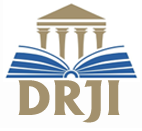MENINGKATKAN KEOTENTIKAN KURIKULUM SEKOLAH ISLAM: KETERLIBATAN GURU, PRAKTIK SUPERVISI, DAN PENDAMPINGAN PARTISIPATIF
Abstract
Keywords
Full Text:
PDFReferences
Ariawan, I. P. W., Giri, M. K. W., & Divayana, D. G. H. (2019). Preliminary Design of CIPP-SAW Evaluation Model in Measuring ICT-based Learning Effectiveness in Health Colleges. Journal of Physics Conference Series, 1402(2), 022077. https://doi.org/10.1088/1742-6596/1402/2/022077
Braun, V., & Clarke, V. (2006). Using thematic analysis in psychology. Qualitative Research in Psychology, 3(2), 77–101. https://doi.org/10.1191/1478088706qp063oa
Creswell, J. W., & Plano Clark, V. L. (2018). Designing and conducting mixed methods research (Third edition). Sage.
Daniel L. Stufflebeam. (2023). The CIPP Evaluation Model: How to Evaluate for Improvement and Accountability.
DeVellis, R. F. (2017). Scale development: Theory and applications (Fourth edition). SAGE.
Efendi, Moch. Y., & Hsi, N. L. (2020). The Comparison of Elementary Curriculum Education Between Indonesia and Singapore. Journal of Teaching and Learning in Elementary Education, 3(1), 22. https://doi.org/10.33578/jtlee.v3i1.7323
Fatimah, S., Koryati, D., & Pratita, D. (2020). Evaluasi RPS Rumpun Ilmu Ekonomi Pada Program Studi Pendidikan Ekonomi FKIP Unsri. Jurnal Profit Kajian Pendidikan Ekonomi Dan Ilmu Ekonomi, 7(2), 146–157. https://doi.org/10.36706/jp.v7i2.12881
Finney, T. L. (2020). Confirmative Evaluation: New CIPP Evaluation Model. Journal of Modern Applied Statistical Methods, 18(2), 2–24. https://doi.org/10.22237/jmasm/1598889893
Glover, A., Jones, M., Thomas, A., & Worrall, L. (2024). Finding the joy: Effective mentoring in Teacher Education. Mentoring & Tutoring: Partnership in Learning, 32(4), 377–394. https://doi.org/10.1080/13611267.2024.2360605
Kvale, S., & Brinkmann, S. (2015). InterViews: Learning the craft of qualitative research interviewing (Third edition). Sage Publications.
Lee, S. Y., Shin, J., & Lee, S. H. (2019). How to Execute Context, Input, Process, and Product Evaluation Model in Medical Health Education. Journal of Educational Evaluation for Health Professions, 16, 40. https://doi.org/10.3352/jeehp.2019.16.40
Mahmud, Y. S. (2019). The Representation of Local Culture in Indonesian Efl Textbooks: Rationales and Implications. Indonesian Efl Journal, 5(2), 61. https://doi.org/10.25134/ieflj.v5i2.1727
Maxwell, J. A. (2013). Qualitative research design: An interactive approach (3 edition). SAGE.
Miles, M. B., Huberman, A. M., & Saldaña, J. (2020). Qualitative data analysis: A methods sourcebook (Fourth edition). SAGE.
Mukminin, A., Habibi, A., Prasojo, L. D., Idi, A., & Hamidah, A. (2019). Curriculum Reform in Indonesia: Moving from an Exclusive to Inclusive Curriculum. Center for Educational Policy Studies Journal, 9(2), 53–72.
Nguyen, H. T. T., Duong, N. T., & Dang, T. T. P. (2024). A Comprehensive Analysis of Teacher Professional Learning Communities: A Scopus Based Review (2019–2024). International Journal of Learning, Teaching and Educational Research, 23(8), 158–179. https://doi.org/10.26803/ijlter.23.8.9
Patton, M. Q. (2015). Qualitative Research & Evaluation Methods: Integrating Theory and Practice (4Th edn). SAGE Publications, Inc.
Renata C. G. V. Nikijuluw. (2020). The Use of CIPP in the Extensive Listening Course at PSDKU Program. Kj, 1(2), 116–123. https://doi.org/10.30598/koli.1.2.116-123
Sopandi, E. (2019). Evaluation of Implementation of Inclusion Education Programs in Madrasah Ibtidaiyah Badrussalam Surabaya. Jisae Journal of Indonesian Student Assesment and Evaluation, 5(2), 26–36. https://doi.org/10.21009/jisae.v5i2.12566
Subur, S., & Hidayati, I. W. (2020). Evaluation of Kemuhammadiyahan Education Program Based on CIPP Method for Strengthening Muhammadiyah Kader. Jurnal Tarbiyatuna, 11(2), 161–168. https://doi.org/10.31603/tarbiyatuna.v11i2.4058
Suharsono & Nur Efendi. (2020). Implementation Management of Modern Education in Madrasah Diniyah. International Journal on Integrated Education, 3(4), 74–80. https://doi.org/10.31149/ijie.v3i4.430
Sumantri, B. A. (2019). Pengembangan Kurikulum Di Indonesia Menghadapi Tuntutan Kompetensi Abad 21. At-Ta Lim Media Informasi Pendidikan Islam, 18(1), 27. https://doi.org/10.29300/attalim.v18i1.1614
Taba, H. (1970). Curriculum development: Theory and practice (Internat. ed). Harcourt, Brace.
Tep, V. (2024). Teacher educators as curriculum developers: A case study of teacher education colleges in Cambodia. Frontiers in Education, 9, 1328023. https://doi.org/10.3389/feduc.2024.1328023
Tyler, R. W., & Hlebowitsh, P. S. (2013). Basic principles of curriculum and instruction. Univ. of Chicago Press.
Vargo, S. L., & Lusch, R. F. (Eds). (2019). The SAGE handbook of service-dominant logic. SAGE Reference.
DOI: http://dx.doi.org/10.30821/hijri.v14i2.25963
Refbacks
- There are currently no refbacks.
Copyright (c) 2025 Hijri

This work is licensed under a Creative Commons Attribution-NonCommercial-NoDerivatives 4.0 International License.
Organizational Collaboration:
Hijri: Jurnal Manajemen Kependidikan dan Keislamanhas been indexed by:
Jurnal Hijri by Program Studi Manajemen Pendidikan Islam FITK Universitas Islam Negeri Sumatera Utara is licensed under a Creative Commons Attribution-NonCommercial-ShareAlike 4.0 International License.










2.png)


